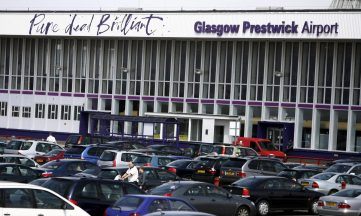A third of families with money concerns have had to buy a computer to help their children’s school work during the coronavirus shutdown, research has found.
The Child Poverty Action Group (CPAG) Scotland surveyed more than 3000 parents last month to find out how families, particularly those on low incomes, were supported when the pandemic closed schools.
The research suggests closure costs fall heaviest on low-income parents.
Poorer families were twice as likely to report lacking all the resources they needed to support learning at home, with 40% missing at least one essential.
The same families were also more likely to have said they needed to buy educational resources than the more well-off.
People worried about their financial circumstances were also more likely to have bought educational resources for their children.
A third of those most worried about money said they have had to buy a laptop, tablet or other device during lockdown.
A mother of a ten-year-old child told researchers: “We use my phone to do everything, we do not have a computer or laptop and a lot of things are not compatible.
“A lot of things we have to write out as we do not have a printer and using a phone isn’t ideal.”
John Dickie, director of CPAG in Scotland, said: “Parents across Scotland have been working really hard to support their children’s learning from home but families struggling on low incomes are facing huge extra stress, worry and costs.
“The families who can least afford it are having to spend more on school resources.”
He added: “This crisis means that even more families than usual are facing financial challenges as schools return with the new blended learning approach.
“Parents have told us what a difference digital and classroom resources and support make, both to their budgets and to their children’s learning.
“Government at every level must now commit to ensuring every child has what they need to fully take part in learning, whether that’s in school or from home.”
A total of 3,218 parents and carers and 1,074 children and young people across Scotland were surveyed for the Cost of the School Day report.
It also found pupils who said they were having infrequent or no contact with their schools reported doing much less work.
Those who said they did a lot of work at home were more likely to report that their schools had provided them with the resources to help them.
The report makes a series of recommendations, including calling for the UK Government to increase child benefit by £10 per child per week, for the Scottish Government to provide emergency cash to low income families, for cash payments for free school meals and for a review of the earnings threshold for eligibility.
Further recommendations include providing all children with the learning tools needed both at school and home and ensuring schools are “properly funded to remove barriers to learning”.
Follow STV News on WhatsApp
Scan the QR code on your mobile device for all the latest news from around the country



























